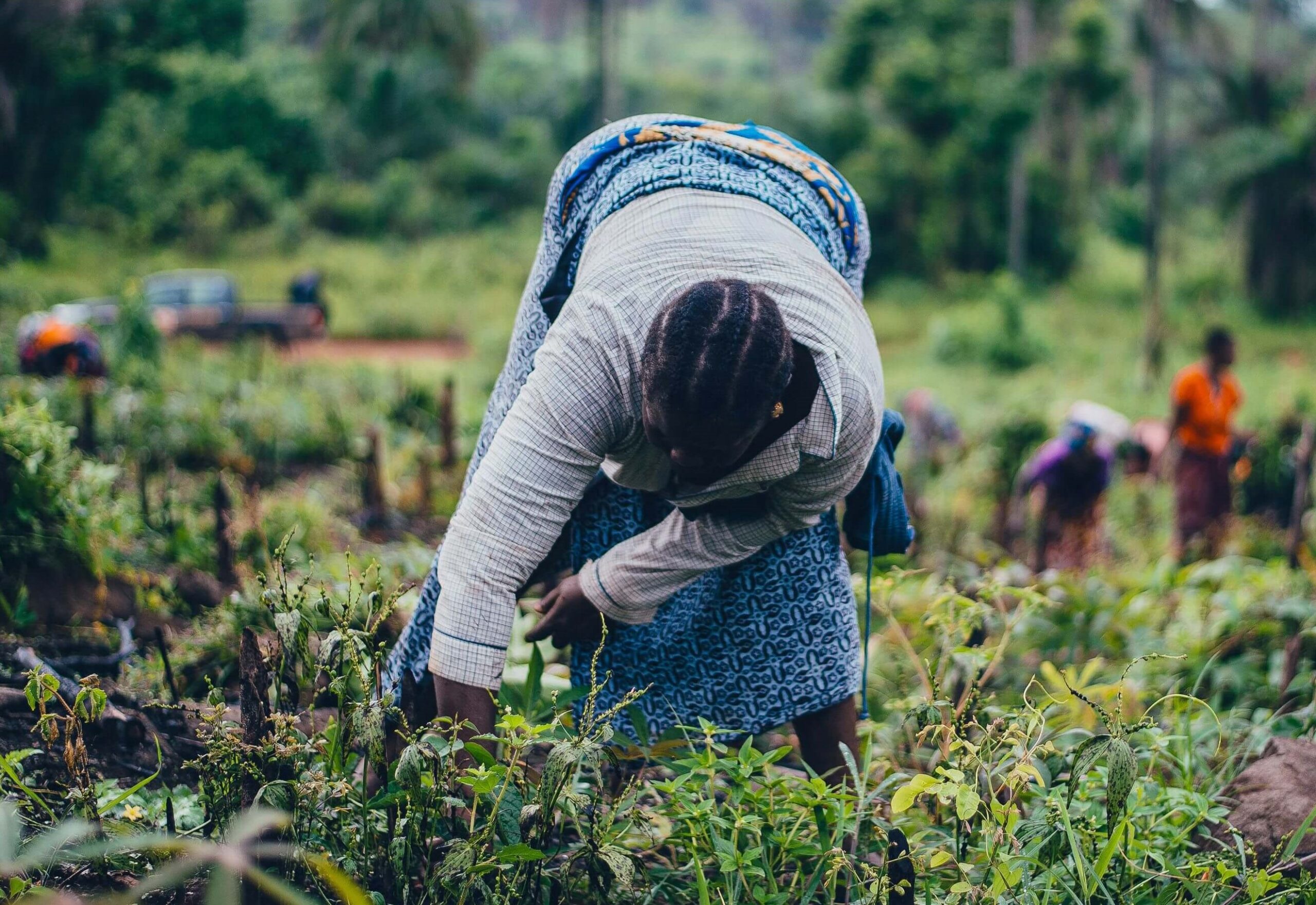MASVINGO, ZIMBABWE: A blue truck laden with fresh farm produce pulls into Chitima Market, Masvingo. It’s just after 5.30 am, and several market vendors rush to meet it as it slows down to a stop.
Four young women donned in white overalls alight from the truck, and within fifteen minutes, all of its load of ripe tomatoes is in the hands of the market sellers.
With the morning’s business over, the four women return to the truck and head back to their farms.
One of them is 31-year-old Faith Mugomba. When she failed to get formal employment after graduation, Mugomba opted to get into farming.
“It dawned on me that I could not starve in Harare job-hunting while my parents owned an underutilised 20 hectares of land back home in Masvingo,” she said.
Her journey began with the equivalent of $5, which she borrowed to buy data from a friend and spent days researching online about growing horticultural produce.
The Mugomba family plot is near Popoteke river, which feeds into Mutirikwi, Zimbabwe’s second-largest inland lake.
‘When I started, I didn’t have any irrigation equipment and would heavy-lift 25-litre buckets daily to water vegetables I planted on a 20-by-10-square-metres of land,” she explained.
After selling her first products, she bought a second-hand irrigation pump that lessened the back-breaking work.
She currently attributes her success to good negotiating skills, but most importantly, the ability to dodge greedy intermediaries.
“These men robbed us in broad daylight. That is why we saw the need to connect directly with the market, hence our early morning visits to Chitima market,” she said.
Mugomba represents a new era of farmers in Africa — enterprising young women in their 20s and 30s involved in the entire supply chain, from the farm to the market.
These trailblazing young women surf the internet for best farming ideas and practices, connect with the market on mobile phones and market their products on WhatsApp, Facebook and Twitter.
Yvonne Shumbanhete, 32, is also among these women.
When economic hardships forced her to migrate from Zimbabwe, she moved to Botswana, where she married at 19 and was widowed at 21.
She then returned to Zimbabwe with her baby and got a job as a janitor before getting employment at a microfinance institution.
However, successive COVID-19 lockdowns forced her to start a backyard farming business after her employer suspended all programming.
“I was idle at home, and my little income at that moment would not sustain me, especially when it was lockdown after lockdown. That is when I decided to get into farming,” she said.
“I didn’t even have a hoe or shovel, and I actually took my dishing spoon from the house and used it as a garden trowel.”
The seemingly going back-to-basics backyard gardening response unexpectedly launched her seedling business which has now expanded and earned her a place in a ZimTrade Female Exporter programme.
ZimTrade is a national body which seeks to develop Zimbabwe companies with products that can be exported to other countries.
Under the Female Exporter programme, the organisation is trying to specifically develop selected Zimbabwe women with the potential to join the export market.
“I just bought one packet of seeds in town, and I came [and] nursed it; then I took what I wanted to plant, went on a WhatsApp group and said I got some seedlings for Covo (vegetable),” she said, reflecting on her journey.
“I had so many people asking for the seedlings, and others were inquiring about other seeds that I didn’t have. I realised there was a business opportunity in that, and that’s when I decided to go back to the shop and get assorted seeds.”
Shumbanhete has since moved her business from her backyard to a farm 50 kilometres from Masvingo. She sells seedlings to farmers and herbs to supermarket chains, hotels, universities, and colleges.
She has a stock of parsley, coriander fennel, mint, aloe vera, lemongrass, garlic chives, sweet basil, and cassava.
Boosted by knowledge gained from her recent training, she has also started value-adding her products by drying vegetables containing herbs. She is making preparations to venture into the spices business.
Her next step: getting her products onto supermarket shelves.
bird story agency
A blue truck filled with fresh farm produce arrives at Chitima Market, Masvingo, where vendors quickly offload ripe tomatoes. Among the women driving this enterprise is 31-year-old Faith Mugomba, who turned to farming on her family's land after failing to secure formal employment. Starting with minimal resources, Mugomba navigated challenges by investing in irrigation equipment and strategically avoiding middlemen to sell directly to the market.
Faith Mugomba exemplifies a new generation of young African female farmers who leverage the internet and social media to optimize their farming operations and market their products. Another such farmer, Yvonne Shumbanhete, returned to Zimbabwe after facing personal and economic hardships in Botswana. She began backyard farming out of necessity during the COVID-19 lockdowns, which eventually grew into a seedling business recognized by a national export program for women.
Shumbanhete’s business has expanded to include a variety of herbs and seedlings, supplied to various sectors including supermarkets and hotels. With new training, she has also started adding value to her products and aims to get them onto supermarket shelves. Both women reflect the innovative spirit among young African female farmers, using digital tools and direct market connections to succeed.






